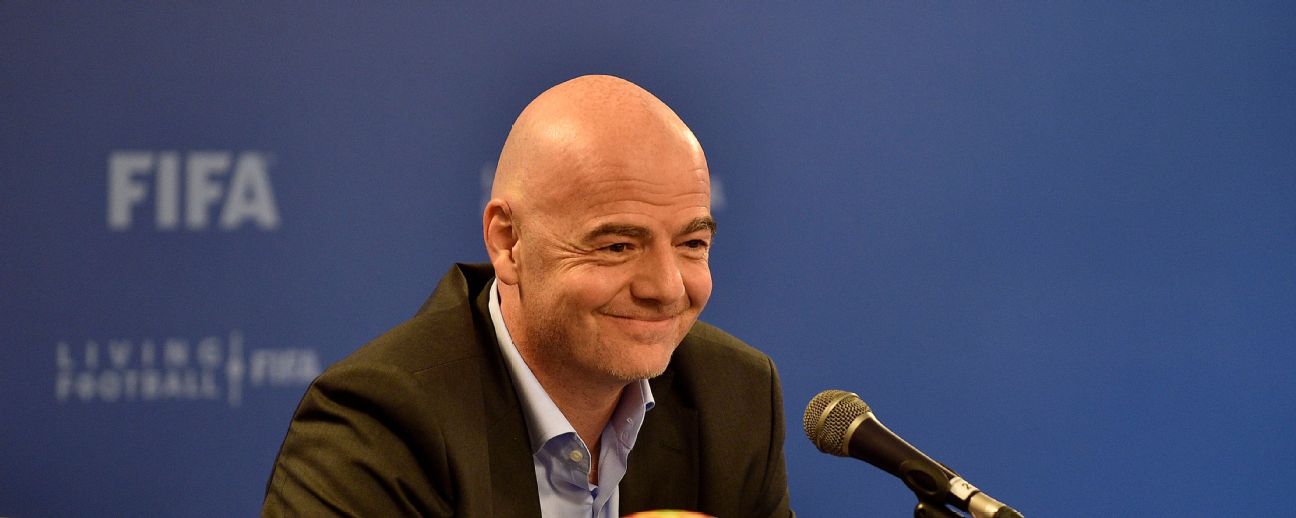A FIFA feasibility study concluded the 2022 World Cup can expand to 48 teams by using at least one of Qatar’s neighbours as an additional host, and found there is a a significant change to the format more than eight years after Qatar won the hosting rights and an additional $400 million in revenue could be generated.
The Associated Press obtained a copy of the 81-page report on Monday that assesses the political, logistical and legal issues surrounding adding 16 teams — a significant change to the format more than eight years after Qatar won the hosting rights. The report was prepared by the governing body so its FIFA Council can agree in principle on expanding the tournament at a meeting in Miami on Friday. A final decision would come in June.
Bahrain, Saudi Arabia and the UAE severed economic, diplomatic and travel ties with Qatar in 2017, which prevents flights between the countries. The study says FIFA accepts that the ongoing political spat prevents their involvement in the tournament. The AP reported last week that FIFA was looking at Kuwait and Oman as options for games in 2022, given their neutrality in the Gulf diplomatic crisis.
“As it currently stands, the nature of Bahrain, Saudi Arabia and the UAE’s relations with Qatar is such that it would be challenging to organize a co-hosted tournament between Qatar and one or more of these countries,” the feasibility study states.
“Candidate co-hosts would need to be regarded as sufficiently cooperative,” the study adds. “Such co-hosts would not sanction or boycott economically or otherwise any other potential co-host country, including the main host, Qatar.”
With logistics already challenged by the existing plan to play 64 games in eight stadiums spread over a 30-mile radius in Qatar, FIFA said two to four additional venues are required in the region “with one or more” nation.
FIFA stipulates that any additional hosts would have to supply government assurances, including on its human rights requirements.
“The involvement of additional neighboring host countries would require certain conditions to be met, in particular the consent of the relevant authorities in the main host country, Qatar,” the FIFA report states. “Therefore, FIFA cannot conclusively stipulate which host countries would be part of a co-hosting arrangement with FIFA and Qatar at this moment.”
The study highlights that venues with at least 40,000 seats — for games up to the quarterfinals — were demanded of 2026 World Cup bidders but doesn’t come to a conclusion on minimum capacities for 2022. While eight potential additional stadiums are identified in the region in the FIFA study, only two in the UAE, one in Saudi Arabia and one in Kuwait meet the 2026 requirements.
